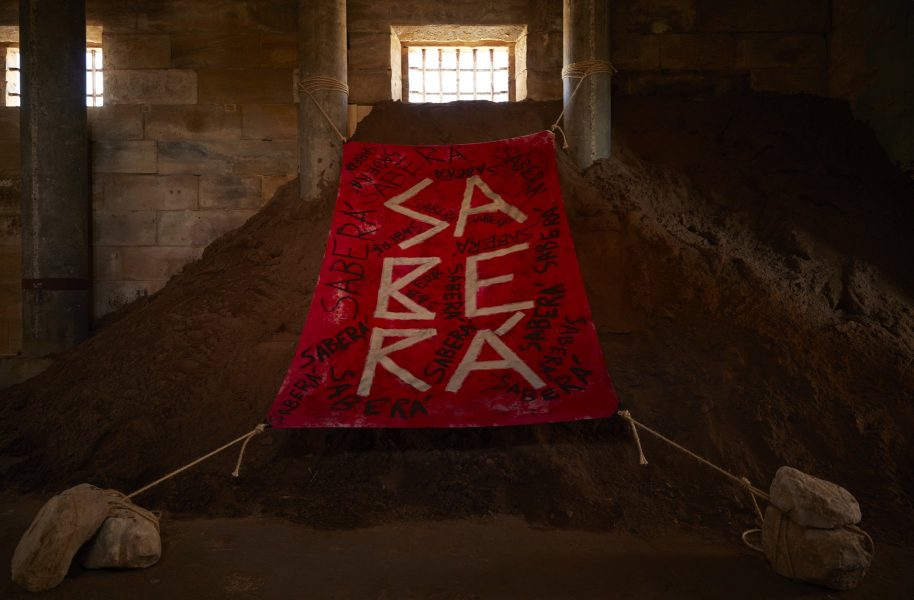Home Participants 22nd Biennale of Sydney (2020) Jota Mombaça
Jota Mombaça


Jota Mombaça
Born 1991 in Natal, Brazil Lives and works between Fortaleza, Brazil; Lisbon, Portugal and Berlin, Germany

Jota Mombaça’s installation and video work palpably expand upon the world of a fictional and dystopic short story, written by the artist and titled ‘The Birth of Urana.’ The protagonist in this piece evades a colonial, militant and authoritarian force by digging deep into the earth, in doing so setting forth a material process of transition towards and integrated relationship with earthly matter itself. This story forms part of the artist’s larger practice, in which visions of the end of the world open new ways to think about inhabiting our bodies, as they structure and respond to our relationship with the natural environment. In doing so, Jota Mombaça envisions a body that transcends colonial binaries and expedient figurations of gender, sexuality and humanness which keep us separated from the natural world. The title of the installation comes from lyrics of the song ‘Djaniras’ by the Brazilian musician Cátia de França. This song also inspired the inclusion of a banner with the word ‘Sabera’ (Portuguese for ‘we will know’) written on it, pointing hopefully to a future in which new modes of knowledge-production and being stem from a closer relationship with the earth. Jota Mombaça is an interdisciplinary artist whose work derives from poetry, critical theory and performance. The sonic and visual matter of words plays an important role in their practice, which often relates to anti-colonial critique and gender disobedience. Through performance, visionary fiction and situational strategies of knowledge production, they intend to rehearse the end of the world as we know it and the figuration of what comes after we dislodge the Modern-Colonial subject off its podium. Commissioned by the Biennale of Sydney with generous support from Open Society Foundations, and assistance from NIRIN 500 patrons. Courtesy the artist.
“THE DAUGHTERS OF THE DRIEST RAIN emerge from a desire to articulate a position in regards to Global Warming, which is not rooted only in a desire for Human Survival, but beyond that, in a deep comprehension of the Earth as entanglement. The work investigates what I would call an earthly resilience, which means an understanding of Earth’s own modes of recreation in the face of colonial, capitalist appropriation of the planet as resource. Through this reading, I intend to activate the possibility of an ethical performance which equates being in the earth with a way of transitioning towards it.”